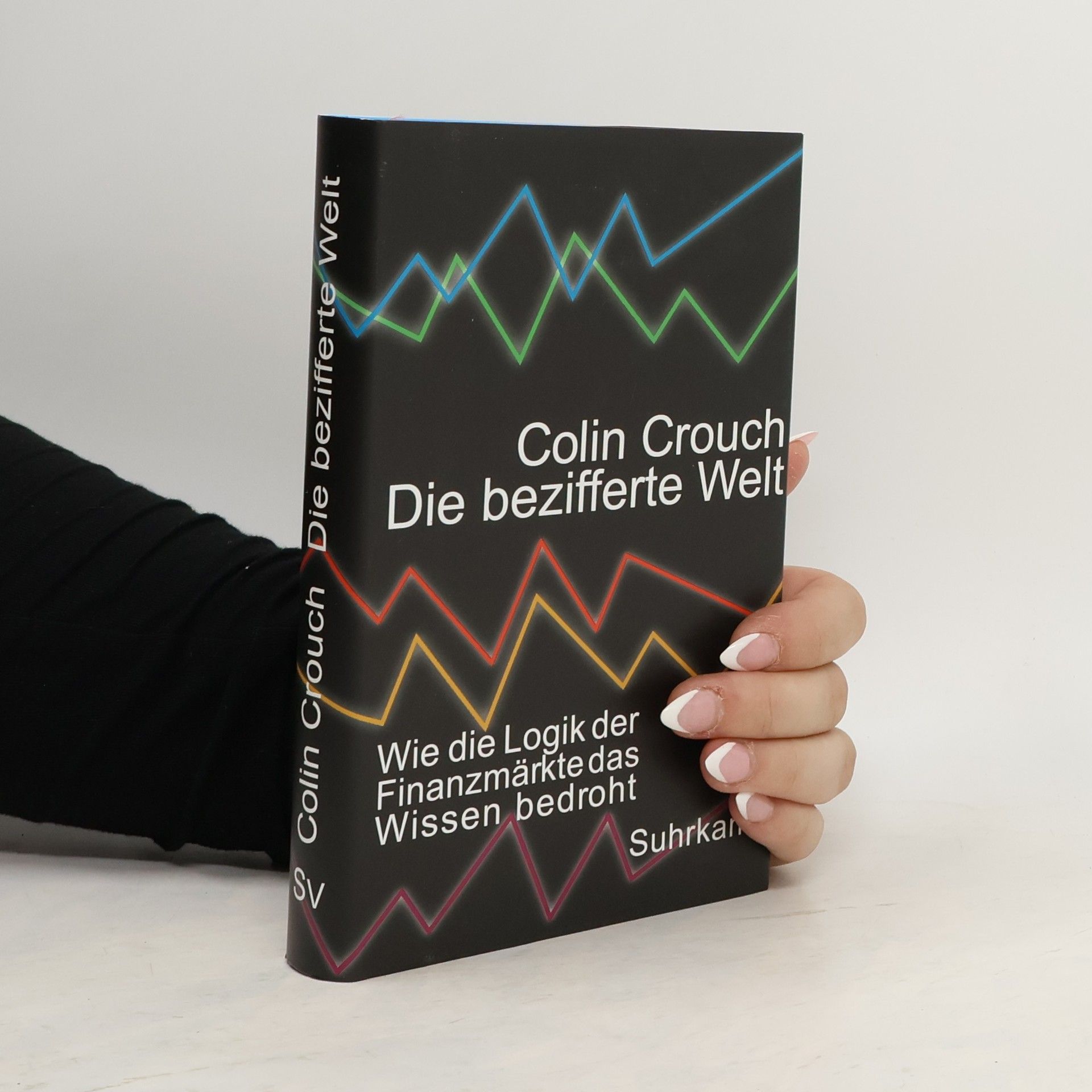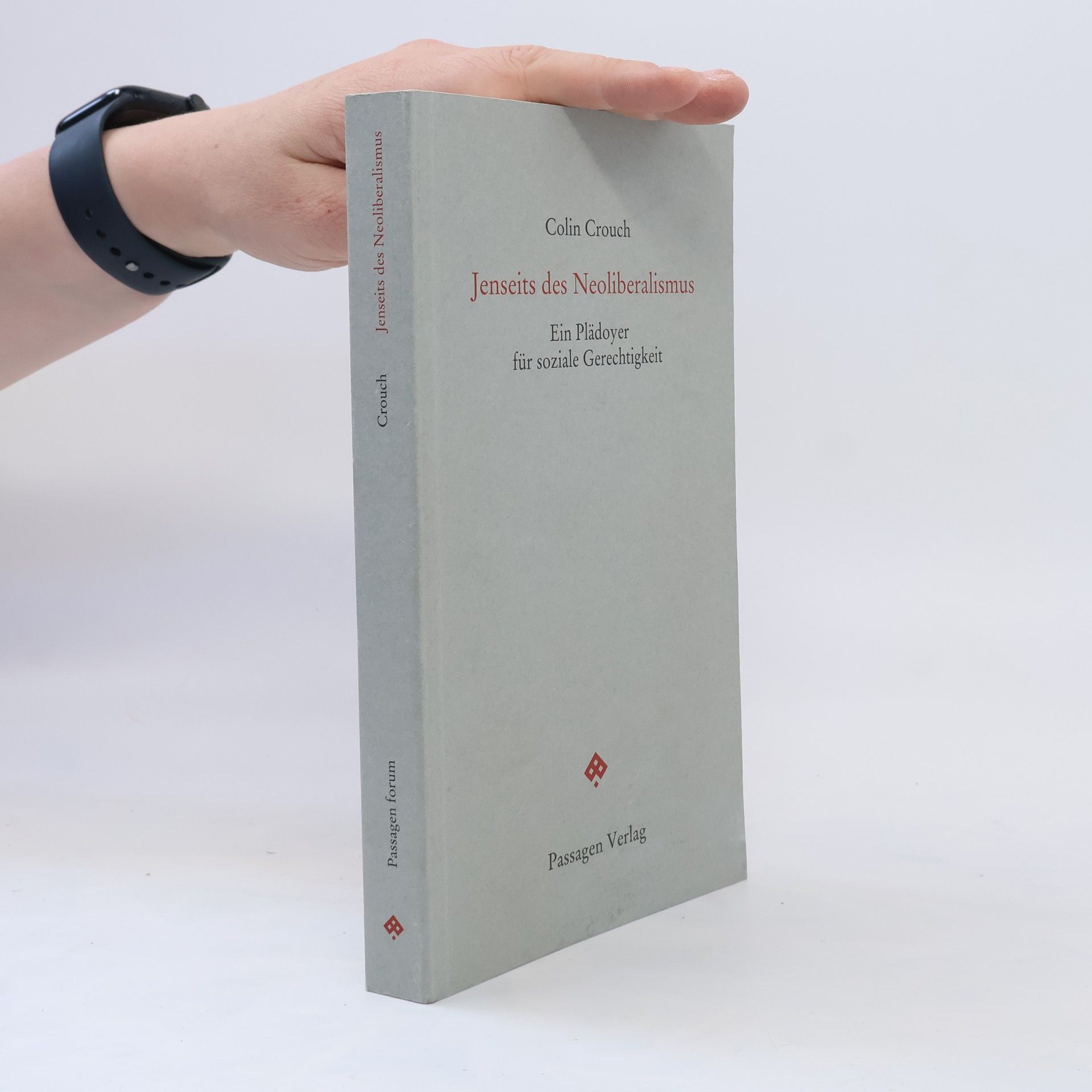Mit seinem Buch Postdemokratie sorgte Colin Crouch 2008 in Deutschland für Furore. In seiner so pointierten wie scharfsinnigen Analyse konstatiert er, dass die Demokratie in den westlichen Gesellschaften im Begriff sei, zur bloßen Hülle zu werden: demokratische Wahlen und Institutionen würden zwar aufrechterhalten, politische Entscheidungen jedoch de facto in den Chefetagen der Wirtschaft getroffen. Das Buch wurde zum Überraschungserfolg. Colin Crouch hatte eine Debatte um den Verfall der repräsentativen Demokratie losgetreten und ihr mit ›Postdemokratie‹ einen Namen gegeben. Jetzt legt Crouch eine Bestandsaufnahme seiner Thesen vor: Wie gut haben verschiedene Demokratien die Corona-Pandemie bewältigt? Wie hat der Aufstieg des Rechtspopulismus demokratische Erosionsprozesse beeinflusst? Und welche Rolle spielen feministische Forderungen im Kampf gegen die Postdemokratie?
Colin Crouch Book order (chronological)
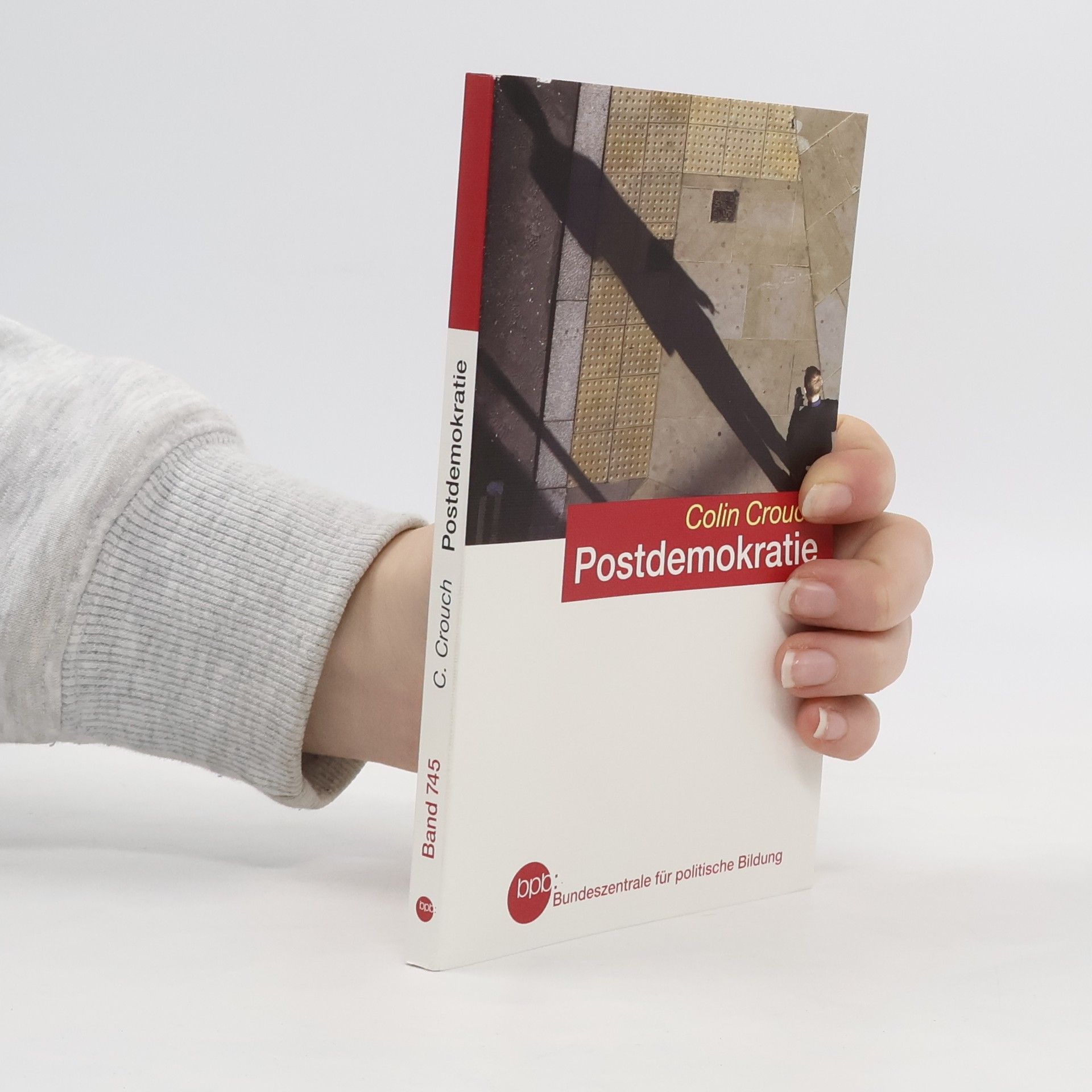

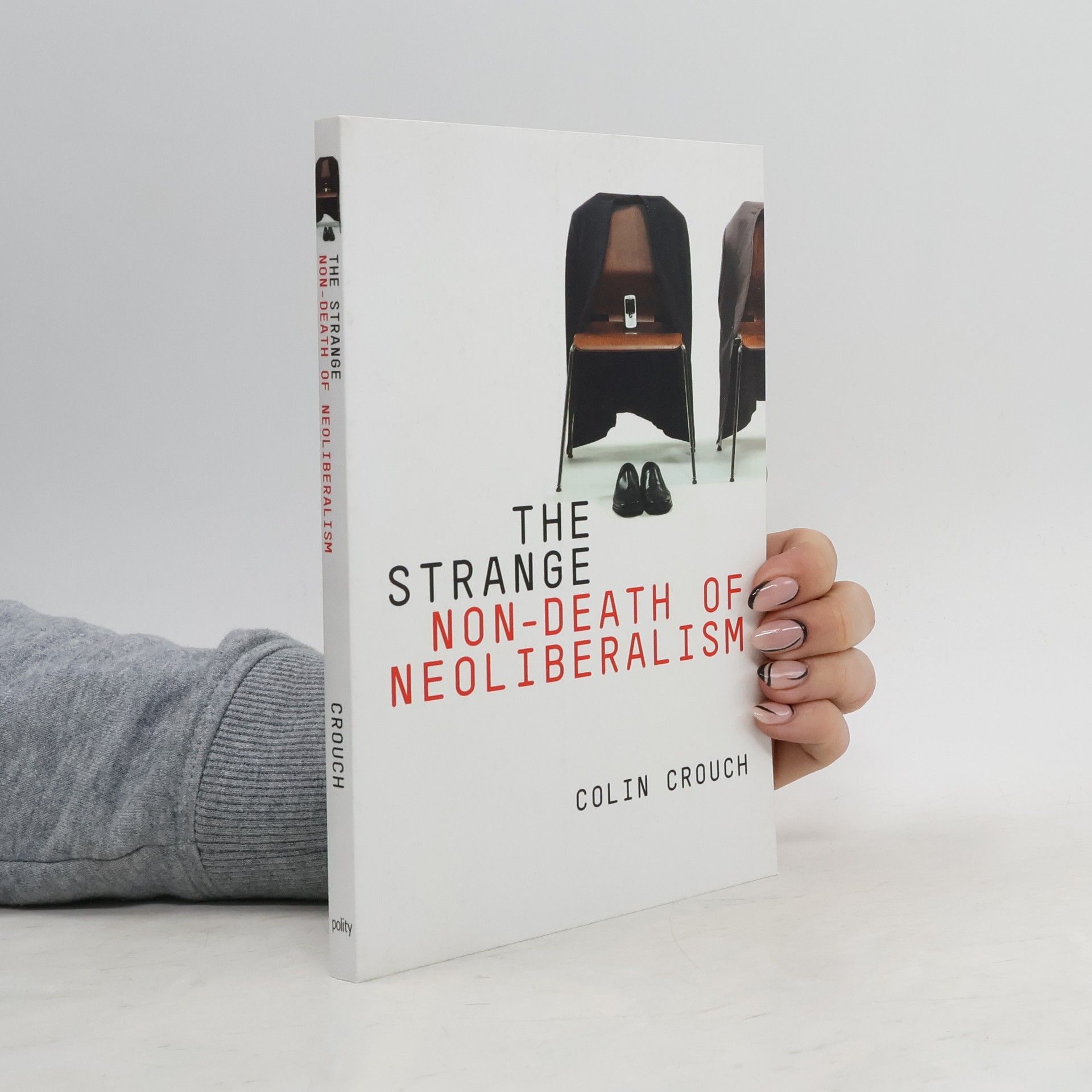

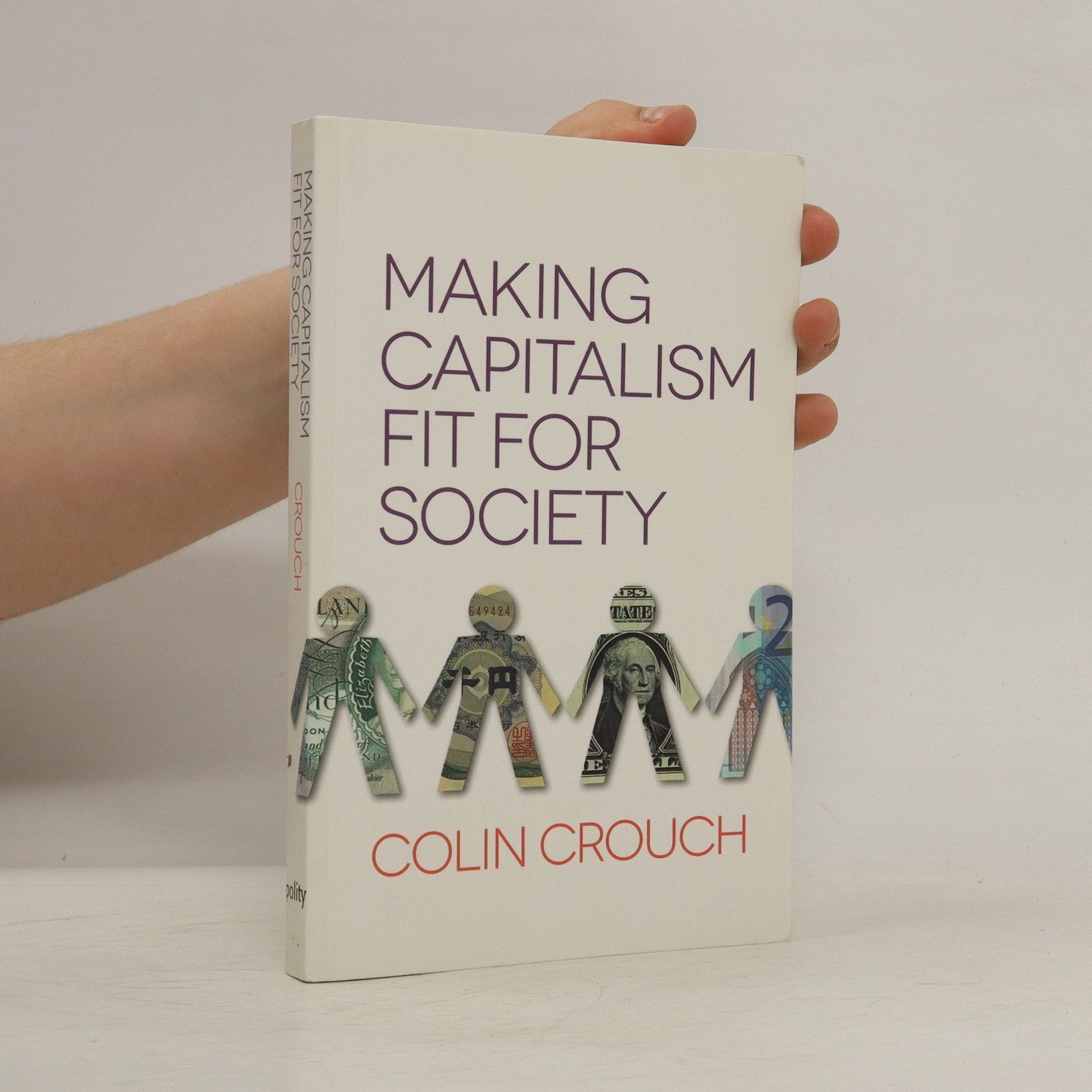
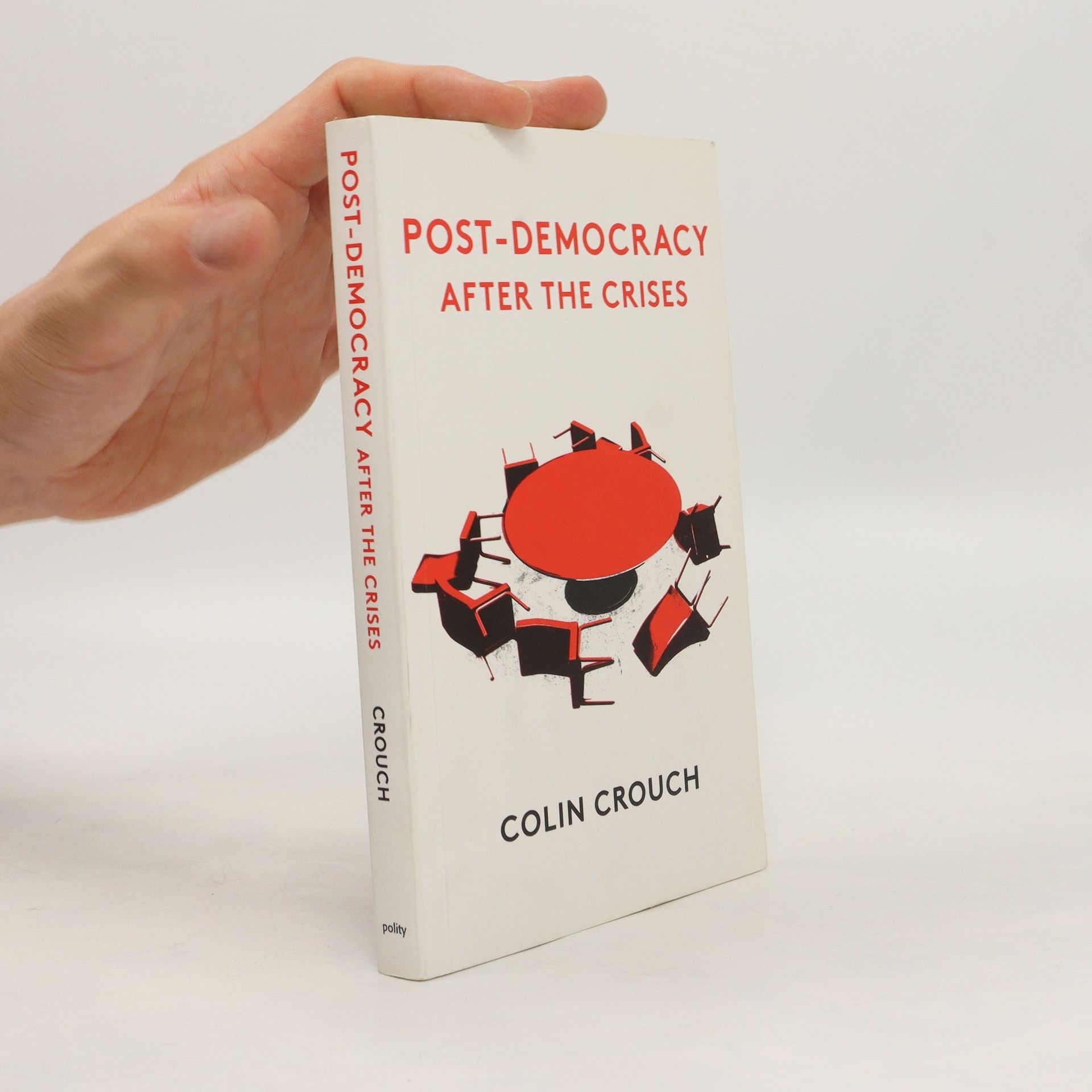
Social Europe - A Manifesto
- 92 pages
- 4 hours of reading
Focusing on pressing global challenges, the book explores the European Union's capabilities in addressing environmental issues, the aftermath of the coronavirus crisis, and the need for reform in globalization and financial capitalism. It highlights the EU's role as a global standard-setter and discusses the potential of a social-investment welfare state to tackle material inequalities and align the future of work with the needs of workers in a dynamic economy.
Post-Democracy After the Crises
- 200 pages
- 7 hours of reading
Crouch's provocative argument in Post-Democracy has in many ways been vindicated by recent events, but these have also highlighted some weaknesses of the original thesis and shown that the situation today is even worse--
Ob Foodora, Deliveroo oder Uber – die Unternehmen der Plattformökonomie bieten denen, die für sie arbeiten, oft das Schlechteste aus beiden Welten: die Unfreiheit von Angestellten gepaart mit der Unsicherheit von Freelancern. Die sogenannte Gig Economy ist allerdings nur die Spitze des Eisbergs. Längst ist auch das Standard-Beschäftigungsmodell in die Krise geraten: Minijobs und aufgeweichter Kündigungsschutz, unfreiwillige Teilzeit und Zeitarbeit sind allesamt Facetten einer Entwicklung, die den Arbeitsmarkt des globalen Nordens seit den späten siebziger Jahren erschüttert. Colin Crouch liefert eine differenzierte Analyse und bietet Vorschläge für zeitgemäße Reformen, mit denen die Unsicherheiten auf dem Arbeitsmarkt abgefedert werden könnten.
Dass es den Neoliberalismus gar nicht gibt, dass es sich dabei nur um einen »Kampfbegriff« handelt, ist zu einem Hauptargument (dem letzten?) seiner Verteidiger geworden. Kaum ein Autor hat dabei so viel zum Verständnis dieses Konzepts beigetragen wie Colin Crouch. Angesichts des rechtspopulistischen Widerstands gegen die marktradikale Form der Globalisierung, angesichts von wachsender Ungleichheit und von Tragödien wie der Brandkatastrophe im Londoner Grenfell Tower stellt Crouch nun die Frage, ob der Neoliberalismus noch zu retten ist. Jenseits polemischer »Dämonologie« und ohne das Kind mit dem Bade auszuschütten, analysiert er die Schwachpunkte dieses Ansatzes. Mit der ihm eigenen Blindheit für seine sozialen Nebenfolgen ist der, so Crouch, Neoliberalismus endgültig selbstzerstörerisch geworden. Werden die Konzerne und Individuen, die bislang von ihm profitieren, das einsehen und endlich umsteuern?
Um kaum einen Begriff der jüngeren politischen Geschichte gibt es so viele Kontroversen wie um den der Globalisierung. Was links und was rechts ist, ist dabei oftmals nur noch schwer zu unterscheiden. Mit seiner differenzierten Analyse der Globalisierung bringt Colin Crouch Klarheit in diesen ideologisch aufgeheizten Konflikt. Die rivalisierenden Positionen im Kampf um die Globalisierung führt Colin Crouch auf einen historischen Konflikt zurück: Konservative Kräfte, die bestehende Hierarchien erhalten wollen, stehen den Befürwortern der Aufklärung gegenüber, die den rationalen Fortschritt und die Werte der Freiheit und Gleichheit vertreten. Da aber diese Werte sowohl von den Verfechtern der sozialen Marktwirtschaft in Anspruch genommen werden als auch von jenen, denen die Freiheit des Marktes als höchstes Prinzip gilt, ist auch das Lager der Aufklärer gespalten. Und auf beiden Seiten floriert heute wieder die konservative Idee einer starken Nation, die Sicherheit verspricht angesichts der Gefahren einer entfesselten Globalisierung. Demgegenüber bezieht Crouch klar Position: Die Globalisierung aufzuhalten, ist weder wünschenswert noch möglich; es muss vielmehr versucht werden, die internationalen Institutionen zu stärken, indem man sie auf der Basis sozialdemokratischer Ideen reformiert und korrigiert.
Vom Autor des Spiegel - Bestsellers Postdemokratie Im Herbst 2014 wurde bekannt, der englische National Health Service wolle in Zukunft jedem Arzt 55 Pfund bezahlen, der bei einem Patienten Demenz diagnostiziert. Die Empörung war groß: Steigt so nicht das Risiko von Fehldiagnosen? Wissen Ärzte nicht auch ohne solche Anreize, was zu tun ist? Das Beispiel zeigt, dass die Logik des Neoliberalismus trotz der großen Krise weiterhin auf dem Vormarsch ist. Der damit verbundene Wandel betrifft alle Lebensbereiche: Schulen, Krankenhäuser und Polizei werden im Rahmen des großen Zahlenspiels umstrukturiert und dem Diktat der Kennziffern unterworfen; aus Studenten und Fahrgästen sollen Kunden werden, die agieren wie Rechenmaschinen. Auf dem Weg in die »Informationsgesellschaft« bleibt eine zentrale Ressource auf der Strecke: das Wissen selbst. Colin Crouch zeichnet nach, wie der Neoliberalismus alternative Formen des Wissens und der Expertise korrumpiert. Anders als seine Apologeten behaupten, ist der Markt keine perfekte Wissensmaschine, die aus anonymen Entscheidungen Transparenz herbeizaubert, im Gegenteil: Lässt man die Logik der Finanzmärkte ungehindert operieren, kann sie das Immunsystem unserer Gesellschaften zerstören.
Markt und Moral
Im Gespräch mit Peter Engelmann
In seinem Buch Jenseits des Neoliberalismus rechnete Colin Crouch unlängst mit der neoliberalen Wirtschaftspolitik ab und plädierte für mehr soziale Gerechtigkeit. In Markt und Moral spricht er sich nun klar für eine freie Marktwirtschaft aus, die durch staatliche und zivilgesellschaftliche Maßnahmen reguliert wird. Im Gespräch mit Peter Engelmann liefert Crouch eine Diagnose der gegenwärtigen politischen und sozioökonomischen Situation. Crouch zeigt auf, warum die Wahlfreiheit als Grundbedingung einer funktionierenden Marktwirtschaft immer an Regulierungsinstanzen gekoppelt sein muss, um Monopolisierungsprozessen entgegenzuwirken. Diskutiert werden auch potenzielle Akteure eines gesellschaftlichen Wandels. Warum setzt Crouch auf die Sozialdemokratie, um die Auswüchse neoliberaler Politik einzudämmen? Welche Rolle haben zivilgesellschaftliche Bewegungen, die, anders als Parteien, nicht demokratisch legitimiert sind? Welche Möglichkeiten der (nationalstaatlichen) Einflussnahme gibt es angesichts einer globalisierten Wirtschaft? Wie begegnet man dem demografischen Wandel und der Prekarisierung von Arbeitsverhältnissen? Dabei geht Crouch auch auf die Rolle einzelner Staaten im globalen Kontext ein: die USA als Weltmacht, die nordeuropäischen Staaten, die für Crouch Modellcharakter haben, die asiatischen Länder, deren kapitalistisches Wirtschaftssystem nicht an eine demokratische Staatsform gekoppelt ist.
Making Capitalism Fit For Society
- 203 pages
- 8 hours of reading
Capitalism is the only complex system known to us that can provide an efficient and innovative economy, but the financial crisis has brought out the pernicious side of capitalism and shown that it remains dependent on the state to rescue it from its own deficiencies.
Jenseits des Neoliberalismus
Ein Plädoyer für soziale Gerechtigkeit
Im Widerstand gegen den Neoliberalismus muss das soziale Denken und damit die Sozialdemokratie aus ihrer defensiven Haltung aufgerüttelt und durchsetzungsfähiger gemacht werden. Der Neoliberalismus hat unsere Gesellschaft bereits nachhaltig geprägt, die Veränderungen der vergangenen Jahrzehnte sind nicht mehr rückgängig zu machen. Aus diesem Grund ist für Colin Crouch ein gestalterischer Eingriff nur systemimmanent denkbar: Die Sozialdemokratie muss den Schwerpunkt ihrer Aktivität auf die Beseitigung unerwünschter Auswirkungen der strukturell ineffizienten Marktwirtschaft legen. Ihre Aufgabe ist es, den Wohlfahrtsstaat zu einem Staat der sozialen Investitionen zu machen. Besonderes Gewicht legt der Autor dabei auf eine familienfreundliche Arbeitspolitik, gute Infrastruktur und auf die Stärkung der Gewerkschaften, die im Einklang mit statt gegen Markteinwirkungen arbeiten müssten. Crouch argumentiert in diesem Buch, warum ausschließlich die sozialdemokratische Bewegung in der Lage ist, die notwendigen Maßnahmen einzufordern und durchzusetzen. Auch als e-Book erhältlich: ISBN 978-3-7092-5006-8




